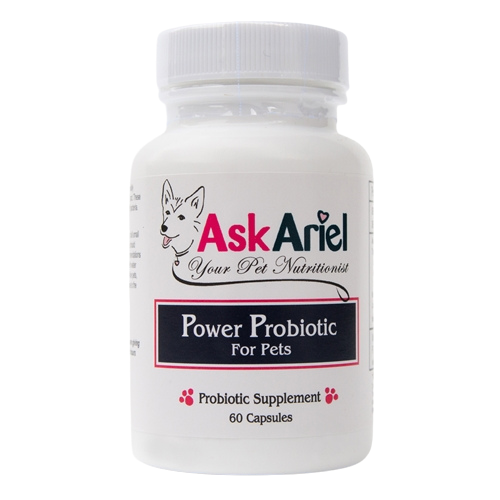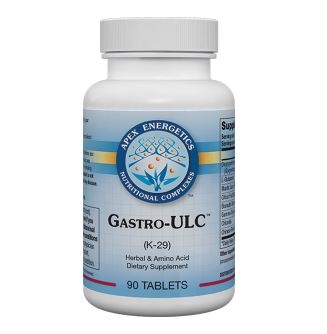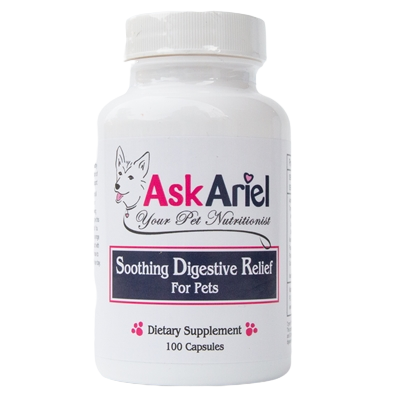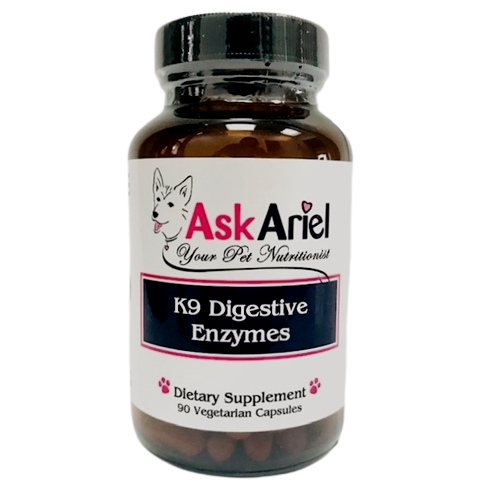Why Do Dogs Eat Grass (and Vomit)?Is your dog eating grass? Are then vomiting yellow bile? Often dog owners wonder, "why is my dog eating grass?" Some dogs enjoy a little vegetation to munch on. But many times, dogs are eating grass due to an upset stomach. Here are some common reasons why your dog might be eating grass:
Is Your Dog Eating Grass and Throwing Up Frequently?If your dog is frequently eating grass and then vomiting, its different than just occasionally nibbling. Much of the time when dogs are eating grass frequently, it is due to painful acid reflux or an upset stomach. Pet owners may not realize their dog is experiencing discomfort. For more information on acid stomach home remedies, click here. Stomach Acid and Acid Reflux in DogsAcid reflux and acid stomach in dogs are painful conditions. Acid collects in the stomach and irritates the stomach lining and esophagus. Over time, the stomach acid can wear away tissue in the esophagus, causing open sores or ulcers, which can bleed and make swallowing difficult and painful. Common symptoms of acid reflux in dogs may include the following:
Signs Your Dog is Eating Grass Because of an Underlying Digestive ConditionTo better understand why your dog is eating grass, ask yourself the following questions: Is your dog "drawn" to the grass, or showing signs of needing to get to the grass such as whining or pulling toward it? Does your dog eat grass and then vomit afterward? Is your dog vomiting frequently, or is your dog vomiting grass and bile? Is your dog eating large amounts of grass? Is your dog routinely wanting to eat grass? Some grazing on grass is natural for a dog, but when they are eating grass frantically this can be a sign of acid stomach or digestive problems. Many times dogs eat grass as a way to make themselves vomit too. If you notice your dog eating grass frequently or eating a lot of grass, then it's important to watch for other signs of digestive problems. Many pet owners don't realize that their pets may be in pain from acid stomach. Restoring the gut flora that leads to a healthy digestive tract is key to relieving your pet’s painful symptoms. Using gentle yet effective all natural supplements can help your dog and eventually stop them from eating grass. We’ve broken down the signs of acid stomach and acid reflux in dogs and what you can do to provide relief for your pet. What to Do If Your Dog is Frequently Eating Grass and VomitingIf your dog is eating grass frequently, vomiting after, and has acid reflux or acid stomach, a proper diet and supplements could help provide them with relief. Home remedies that contain natural ingredients can promote friendly flora to support a healthy digestive tract and reduce dog regurgitation and grass-eating. A healthy diet will help alleviate acid reflux and reduce symptoms. Recommended Supplements for Dogs with Acid StomachIf your dog is eating grass frequently, vomiting after, and has acid stomach, our all-natural digestive supplements can give your dog fast relief. These home remedies contain ingredients that promote friendly flora to support a healthy digestive tract and reduce dog regurgitation and grass-eating.  Power Probiotic - Power Probiotic is a multi-strain probiotic, backed by research and proven to help your dog's digestive symptoms. It’s pure, safe, natural and third-party tested. One reason dogs eat grass is because they have an upset stomach, so using Power Probiotic will help soothe their tummies and restore a normal balance of flora. Most dogs love the taste. Giving Power Probiotic with a snack before bedtime can help prevent your dog from vomiting bile in the morning.  Gastro ULC Acid Relief Formula - Gastro-ULC relieves stomach acid pain and GERD symptoms quickly. The main reason a pet will eat grass is to relieve acid stomach pain and heartburn. Gastro-ULC helps to heal the lining of the stomach while providing a gentle, soothing coating to relieve heartburn. Gastro-ULC contains anti-inflammatory and immune-boosting licorice root to soothe stomach acid and repair the lining, the amino acid L-glutamine to protect against toxic bacteria such as H. pylori, and anti-inflammatory and antioxidant-rich mastic gum to relieve abdominal discomfort. Mastic gum has been shown to be helpful in reducing excess bile within the stomach and intestines. Many pet owners report that after giving Gastro-ULC and Power Probiotic, their pet stopped eating grass and vomiting. Gastro ULC Acid Relief Formula - Gastro-ULC relieves stomach acid pain and GERD symptoms quickly. The main reason a pet will eat grass is to relieve acid stomach pain and heartburn. Gastro-ULC helps to heal the lining of the stomach while providing a gentle, soothing coating to relieve heartburn. Gastro-ULC contains anti-inflammatory and immune-boosting licorice root to soothe stomach acid and repair the lining, the amino acid L-glutamine to protect against toxic bacteria such as H. pylori, and anti-inflammatory and antioxidant-rich mastic gum to relieve abdominal discomfort. Mastic gum has been shown to be helpful in reducing excess bile within the stomach and intestines. Many pet owners report that after giving Gastro-ULC and Power Probiotic, their pet stopped eating grass and vomiting.
 Soothing Digestive Relief Formula - This is a gentle, effective formula for the treatment of inflammatory bowel disease (IBD) and any type of indigestion in pets. It helps with gas, upset tummy, diarrhea and malabsorption. Soothing Digestive Relief Formula has a calming effect, providing relief from indigestion, gas, tummy noises and pain. It contains a special blend of time-tested herbs and plant enzymes scientifically proven to calm and soothe the digestive tract.  K9 Digestive Enzymes - Helps to maintain normal digestive function. Since acid reflux is caused by poor digestion, it is essential to use a digestive enzyme for increased absorption of proteins and fats. Contains pancreatin, ox bile and HCL. An adequate level of hydrochloric acid (HCL) is essential for proper functioning of the digestive system. It activates the digestive enzymes that break down foods. An optimal level of stomach acid can keep the digestive system free of bacteria, yeast and parasites. K9 Digestive Enzymes - Helps to maintain normal digestive function. Since acid reflux is caused by poor digestion, it is essential to use a digestive enzyme for increased absorption of proteins and fats. Contains pancreatin, ox bile and HCL. An adequate level of hydrochloric acid (HCL) is essential for proper functioning of the digestive system. It activates the digestive enzymes that break down foods. An optimal level of stomach acid can keep the digestive system free of bacteria, yeast and parasites.
“My 9 year old Welsh Springer Spaniel mix, Max, didn't have much of an appetite and would frequently vomit. He would often rush out to eat grass and then vomit afterwards. I was worried because he was thin and seemed so uncomfortable. I followed the Ask Ariel program and changed his diet while using supplements such as Gastro ULC and Power Probiotic. l really wasn't expecting much because I had made prior changes before that hadn’t worked. Within just a few days, Max improved. He no longer was interested in eating grass and his vomiting stopped. Max is now at a healthy weight and it is so nice to see him so happy to see his meals.” The Best Diet for a Dog That Eats Grass and VomitsTake a moment to look at the diet you are feeding your pet. One reason pets may eat grass and vomit is because they have poor digestion or are reacting to the ingredients in their food. The diet could contain grains, food allergens and starchy carbohydrates that are difficult to digest. The diet could be too high in fat. For example, small bites of cheese or peanut butter may not seem like much, but they are high in fat and are huge allergens that can cause digestive discomfort. Many of the best-selling premium brands contain allergens or starchy carbohydrates that can cause a variety of digestive problems. Changing your pet's diet, adding a few supplements to support digestion and feeding smaller meals throughout the day can help reduce grass eating. A snack before bedtime along with a probiotic supplement can be very helpful for dogs vomiting yellow bile in the morning. What To Do Immediately When Your Dog Vomits Yellow Bile After Eating GrassSome dogs eat grass and vomit yellow bile and foam. Bile is acidic and can irritate the stomach. It appears as a yellowish foamy substance. Bile is produced by the liver and is squirted into the intestines to help with digestion of fats and protein. When a dog is throwing up bile regularly, it can end up in the stomach, causing irritation. If your dog eats grass and then starts throwing up yellow foam regularly, please take your dog to the veterinarian for a check up. Finding the root cause of why your dog is eating grass and vomiting yellow bile is important to bringing your pet fast relief. Try to look for the signs to understand the reasons behind your dog's grass eating. If you notice your dog has rumbling tummy noises after eating grass or after eating meals, loose stool, gas, vomiting, diarrhea, bad breath or other signs of digestive discomfort, it is important to bring this to the attention of your veterinarian. Basic laboratory tests for your dog (e.g., blood panel and urine analysis) will provide valuable information, as acid stomach can be a symptom of a more serious health condition such as kidney or liver disease, seizure activity or inflammatory bowel disease (IBD) in your dog. Originally published Dec 11, 2023 Updated March 29, 2024 Written by: Susan Davis, Pet Health Nutritionist, CCN All pet treatment protocols and pet treatment supplements have been reviewed and approved by a veterinarian |







